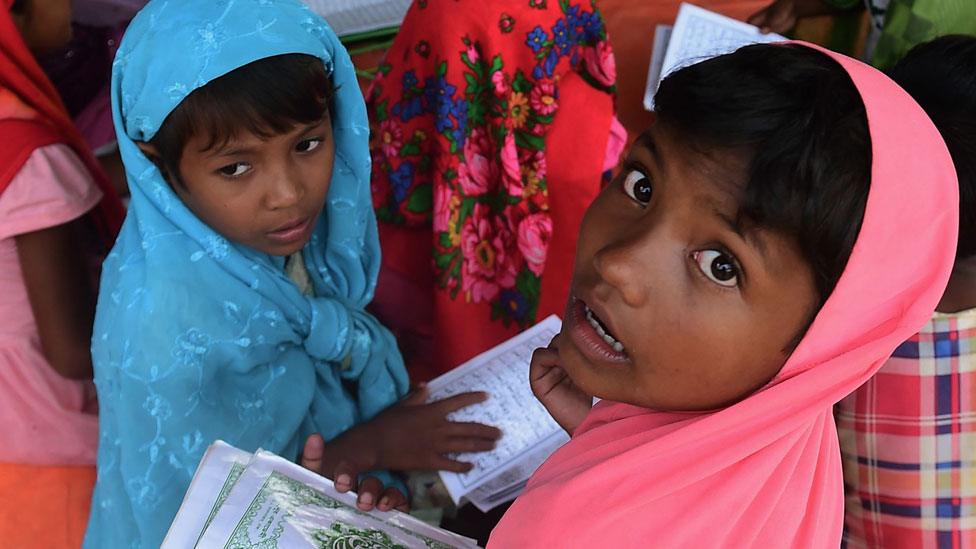Coronavirus: Aid worker's Rohingya refugee camp challenge
- Published
Alex is an aid worker for the United Nations world food programme
An aid worker said he faced his most challenging time at the world's largest refugee settlement during the pandemic.
Alex Dattani, 31, from Abergavenny, Monmouthshire, contracted coronavirus while at the Rohingya refugee settlement in southern Bangladesh.
Nearly one million people live in the camps at Cox's Bazar - one of the most densely-populated places on earth - where social distancing very difficult.
Alex is an aid worker for the United Nations World Food Programme.
"It's tough to enforce social distancing and it's an alien concept to the refugees who have never had to deal with anything like this before," he said.
"With the World Food Programme we provide food to every single refugee at the camp. It's an immense challenge but a unique opportunity to reach every single household.
"One person for every household comes to our site to collect their food and we're getting good messaging out there too about how people can prevent the spread of coronavirus and how they can stay safe In their communities."
The field operations officer said workers were also having to deal with the monsoon season and were in an area which could be hit by cyclones.
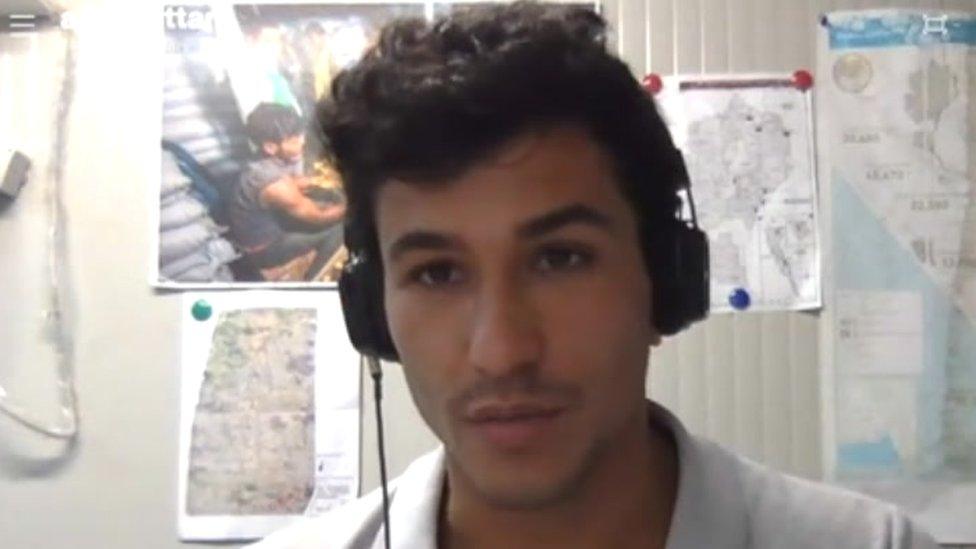
Alex hopes to return to Wales by Christmas
"The usual procedure would be for people to evacuate and get to a cyclone centre but this just isn't an option for the refugees," he said.
"And on top of that we are also dealing with the covid response which has put the engineering projects on hold because it means working in close proximity which can't happen.
"But these projects are needed to minimise the impact the monsoon season can normally have. So we are dealing with lots of rapid responses too with landslides and people's homes being washed away."
Aid agencies have been warning for weeks about the potential impact of the virus on the Rohingya refugees who live in cramped, congested conditions and have limited access to clean water.
The virus entered the refugee settlement in Cox's Bazar in May with the first death coming at the end of the month.
Myanmar: Who are the Rohingya?
"At the moment the number of confirmed coronavirus cases is very low, it's around 75 with five deaths," said Alex.
"The impact this has had on us as humanitarians means that our movements around the camps have been very limited. The restrictions - while they have been successful in reducing the spread - they are posing greater challenges for us.
"We've implemented the same things you'll see in your supermarkets in Wales with social distancing and hand sanitising.
"People are made to wash their hands and have their temperature checked before entering the distribution centre too and anyone showing a temperature will have to go back home and another member of the family will have to come and get supplies."
The Rohingya, who numbered about one million in Myanmar, also known as Burma, three years ago, are one of the many ethnic minorities in the country and have faced persecution for generations.
The latest exodus of Rohingya escaping to Bangladesh began in August 2017 after militants from a Rohingya insurgent group launched deadly attacks in Myanmar, it triggered one of the largest movements of people in recent history.
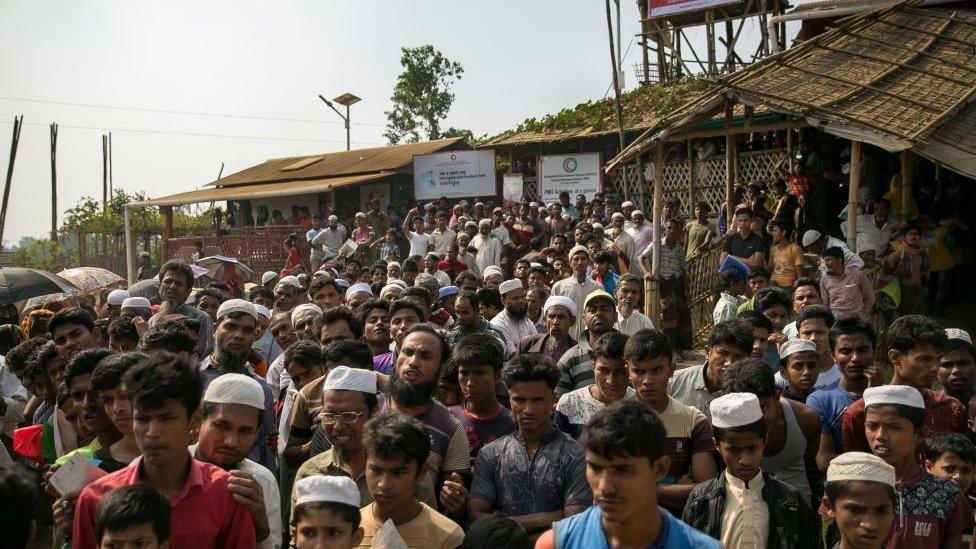
There is little room for social distancing in the camp
More than 700,000 fled into neighbouring Bangladesh in the months that followed, having lost everything.
Alex said: "The first time you visit the camp it is totally overwhelming but very quickly you're consumed by your work and you're completely normalised to working in the biggest refugee camp everyday.
"You see things you wouldn't see if I'd decided to stay in Wales, but the work is extremely rewarding.
"Even though it's around a million people living in this space, they are extremely resilient.
"They are often surprisingly happy and you come across very warming and touching scenes you wouldn't necessarily expect to see in a refugee camp."
- Published9 April 2020
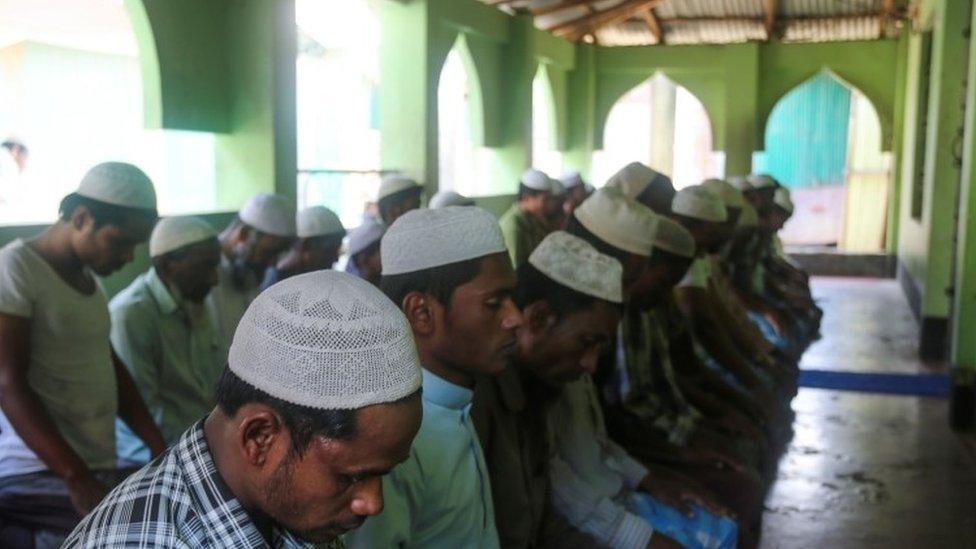
- Published14 May 2020

- Published29 May 2020
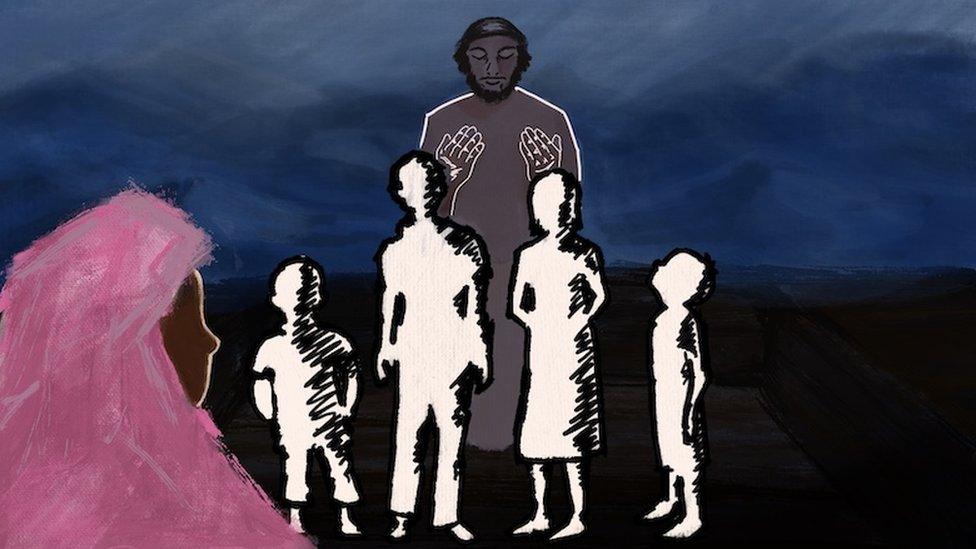
- Published23 January 2020
